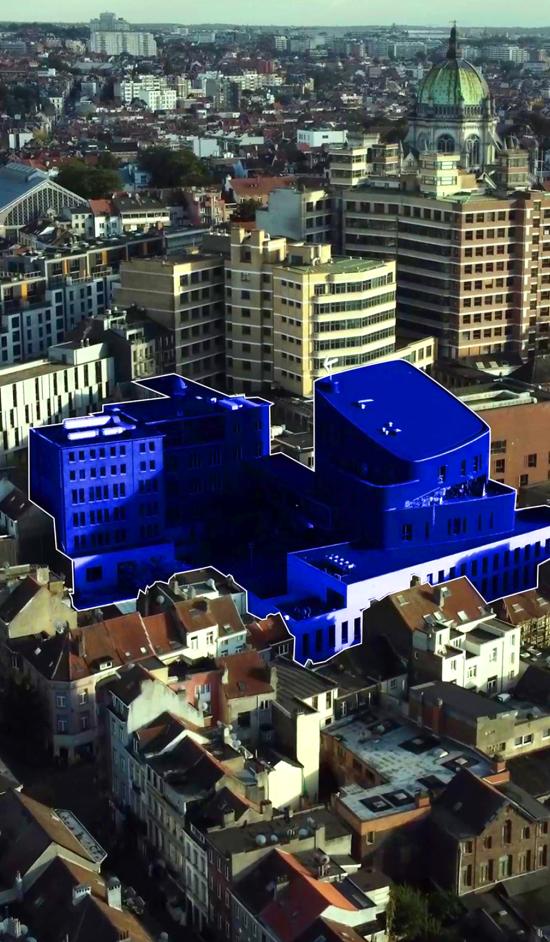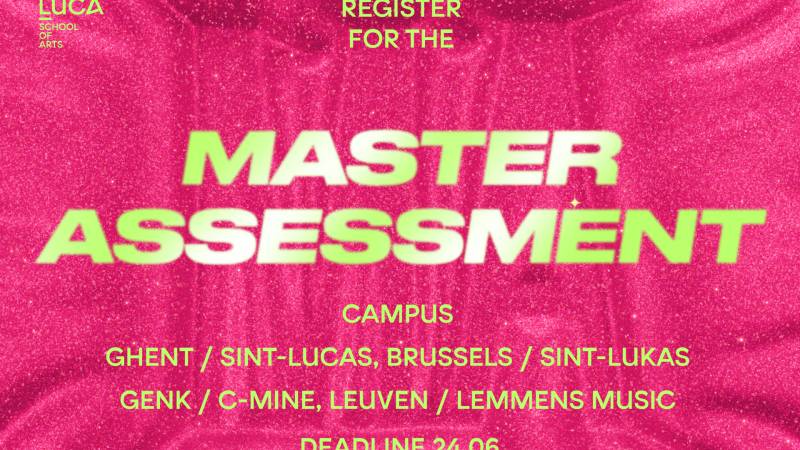
Campus Brussel / Sint-Lukas
Master FilmMemory
FilmMemory is a new Erasmus Mundus Joint Master (EMJM) that deals with audio-visual heritage and with the preservation, restoration, recirculation, and utilisation of that heritage in the context of current and evolving screen cultures.
The programme partly focuses on working with film stock archives, but also emphasises other contemporary challenges, including the role of digital media, tools, and associated skills, addressing emerging possibilities regarding the scope and dissemination of film heritage material. As a joint master's programme, taught in four countries across Europe, FilmMemory offers a thorough interrogation of the social, political, and industrial diversity of European film cultures. This includes the analysis of historical and contemporary modes of production, distribution and presentation, and the contextualization of filmic material within discourses of reception, critique, and scholarship. Students will explore the ways in which films and documents about film cultures are archived, preserved, restored, re- circulated, re-used and re-constructed.

Students spend the first semester in Belgium (LUCA School of Arts, Brussels), the second in Portugal (ULHT, Lisbon), and the third in Ireland (IADT, Dublin). During these three semesters, the students all follow the same curriculum on the same location. There is also a structural teacher mobility agreement with BFM (Tallinn, Estonia). Finally, during the fourth and final semester, the students still follow the same curriculum and all work on their FilmMemory Project [graduation project]. This time, however, they are distributed over the four partner universities. Participation is possible either with a scholarship granted by the Erasmus+ programme, or as a self-funded student.
The course is entirely taught in English and takes a practical approach, Click here for an overview of the full FilmMemory course curriculum.
LUCA School of Arts is the only University of Applied Sciences (and Arts ) in Flanders exclusively dedicated to art and design, making it unique in the region. As a School of Arts LUCA combines the strengths and expertise of five renowned Flemish higher education institutions for art and design, spread across Brussels, Genk, Ghent and Leuven. LUCA also gives form to the associated Faculty of Arts of the KU Leuven which is an intensive collaboration between LUCA School of Arts and KU Leuven. Whereas LUCA, as a college, is responsible for bachelor and master degrees in the arts, KU Leuven, as a university, is authorized for doctorates. Artistic research is therefore situated at a crossroads, which explains the faculty's associated status. It is an "in-between space", in which the assets of the School of Arts and the Research University reinforce each other. LUCA participates as such on the open day of the KU Leuven. LUCA will be presenting its even full-English MA programmes on its campuses in Brussels, Genk, Ghent and Leuven.
Interested in this course?
Who can apply?
FilmMemory is aimed at students from all over the world with a bachelor's degree (BA) in Audio-visual Arts, Film studies, Communication Studies, Arts, History, Cultural Studies or related subjects such as Archival Studies, Heritage Studies or Museology. Other degrees (of at least EQF Level 6) may be accepted from applicants with a convincing application package and upon completion of an outstanding application assignment. Applicants without such a degree must demonstrate a recognised equivalent level of learning according to national legislation and practices in the degree-awarding countries/institutions.Candidates eligible for scholarships are students who have obtained a primary higher-education degree or can demonstrate a recognised equivalent according to national legislation and practices of the degree-awarding country. While this condition must necessarily be fulfilled at the time of enrolment, the Consortium accepts scholarship applications from students in the last year of their first higher education degree.
Deadlines & interviews
For more information and deadlines visit www.filmmemory.eu/application/call-for-applicants.
Where do you have class?
Facilities & campus life
- 1st semester: Belgium (LUCA School of Arts, Brussels)
- 2nd semester: Portugal (ULHT, Lisbon)
- 3rd semester: Ireland (IADT, Dublin)
- 4th semester: distributed over the four partner universities Brussels, Lisbon, Dublin, Tallinn
FilmMemory will play a significant role in providing specialists for audio-visual archives, cinemas, festivals, film funds, journals, museums, digital image processing labs, distribution companies, production companies, publishing/press agencies, and government agencies, where this kind of expertise, and associated skill sets, are in increasingly high demand.

